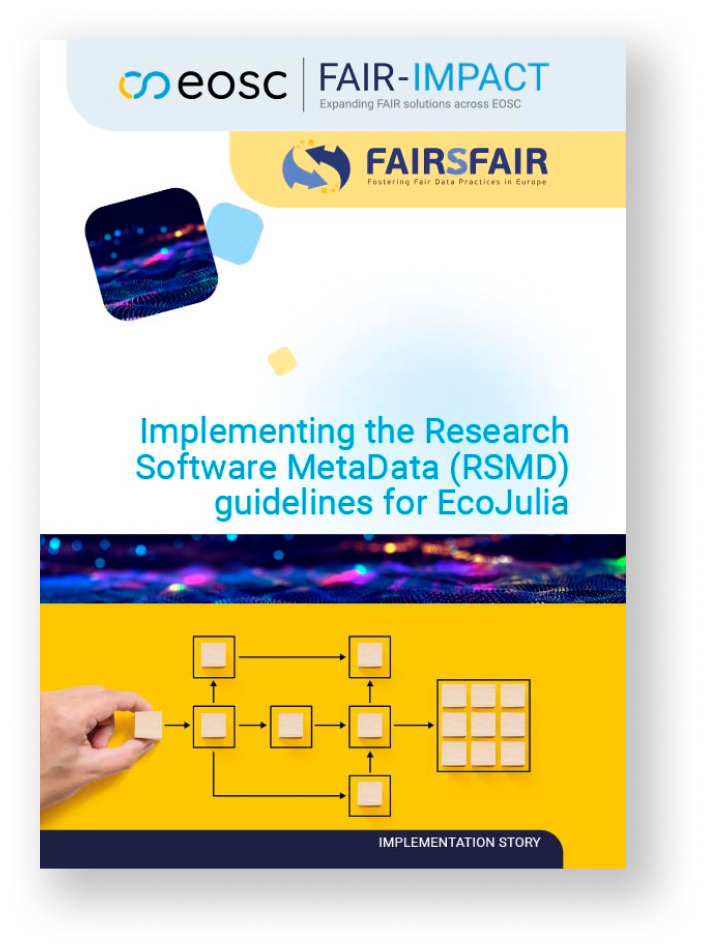Implementing the Research Software MetaData (RSMD) guidelines for EcoJulia
Software plays a crucial role in academic research, not only as a tool for data analysis but also as a research outcome or result, or even the object of research itself. FAIR (Findable, Accessible, Interoperable, Reusable) research software can increase the transparency, reproducibility, and reusability of research. For this to happen, software needs to be well-described (by metadata), inspectable, documented and appropriately structured so that it can be executed, replicated, built-upon, combined, reinterpreted, reimplemented, and/or used in different settings. The FAIR4RS Principles aim to guide software creators and owners on how to make their software FAIR. FAIR-IMPACT offered two support actions designed to enhance the FAIRness and impact of research software:
- Assessing and improving existing research software using a new extension of F-UJI which implements some of the metrics for automated FAIR research software assessment.
- Implementing the Research Software MetaData (RSMD) guidelines for better archiving, referencing, describing, and citing research software artefacts.
This FAIR Implementation Story outlines the specific aims and actions of the University of Glasgow in relation to their participation in one or both support actions.
"We believe it’s important to expand the FAIRness of research ecosystems, from source data to software to the research outputs, and that we can trace the workflow from source to output."
Supported applicant:
- Richard Reeve, Boyd Orr Centre for Population and Ecosystem Health, School of Biodiversity, One Health and Veterinary Medicine, College of Medical, Veterinary and Life Sciences, University of Glasgow
- Ryan Field, Research Software Engineering Group, College of Medical, Veterinary and Life Sciences, University of Glasgow
